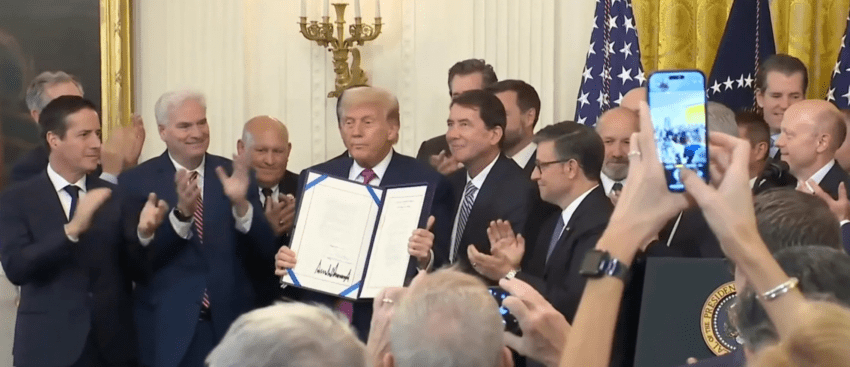President Donald Trump signed the GENIUS Act just one day after it was passed in the House of Representatives by a majority of 306 votes to 122 votes.
The bill represents the first federal legislation on cryptocurrency in the United States, establishing strict rules for stablecoin issuers, including full 1:1 reserves, regular audits, and registration with federal or state regulators.
Trump signs the GENIUS Act behind closed doors
Trump signed the bill during a closed session on Friday morning. While celebrating the victory, he jokingly told reporters, "It's called the Genius Act. I think it bears my name."
David Sachs, a cryptocurrency expert who played a pivotal role in last-minute negotiations, stated that the bill was "dead" earlier this week, until "we got a secret weapon, which is a deal-breaker being the commander-in-chief," referring to Trump's intervention.
Despite bipartisan support for the bill, some far-right Republicans still oppose it. Representative Marjorie Taylor Greene posted a warning on her X (formerly Twitter) account:
"Congress is today passing the (GENIUS Act) which opens the back door for a central bank digital currency (CBDC)... The Federal Reserve has been working on this for years... and the ultimate goal is to move us towards a cashless society.

Critics of the Republican House have accused them of passing the "Genius" Act without obtaining Senate support for an official ban on central bank digital currencies. The Senate has not yet passed the separate bill - the Anti-Central Bank Digital Currency Act.
Supporters of the GENIUS Act claim that the bill explicitly bans algorithmic stablecoins and requires full dollar reserves, providing a secure framework for regulated digital dollars that are not under government control.
With Trump's signature, the GENIUS Act took effect immediately. U.S. regulatory agencies were given until 2026 to draft and implement rules for licensing stablecoins.